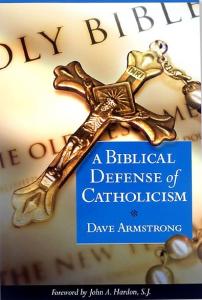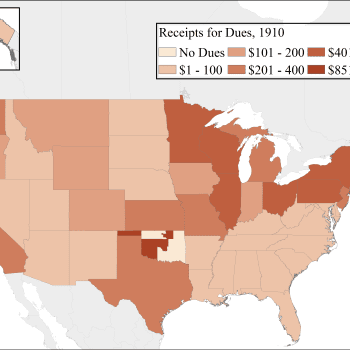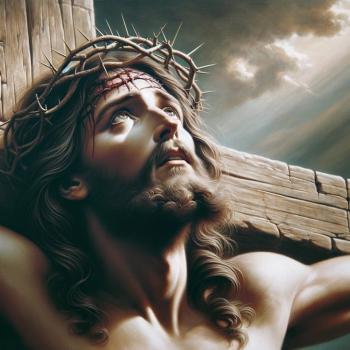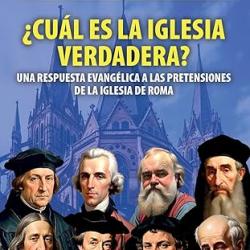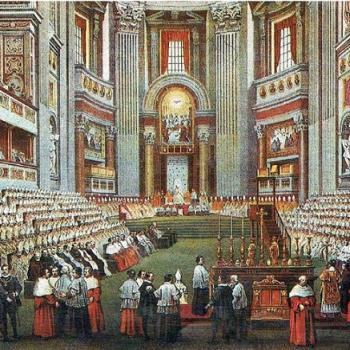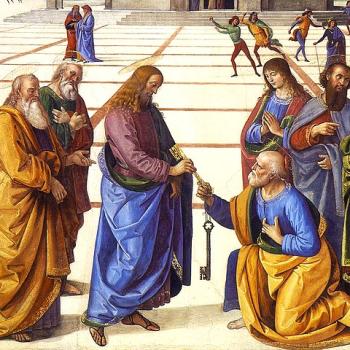[see book and purchase information for this book of mine, published in 2003 (Sophia Institute Press); completed in 1996]
Dr. Rodrigo Silva (“ecumenical” Brazilian Seventh-day Adventist and former Catholic) obtained a doctorate in Biblical Theology from the Pontifical Faculty of Theology N. S. Assunção (SP), a doctorate in classical archeology from USP, and a postdoctoral degree in biblical archaeology from Andrews University (USA). He holds a degree in theology and philosophy, a master’s degree in historical theology, and is the author of the books, The Skepticism of the Faith, The Bible from Alpha to Omega and Historical Encyclopedia of the Life of Jesus. Dr. Silva hosts the program Evidências NT and is the historical consultant for Record TV.
This is my first counter-reply to Dr. Silva. His videos that I am responding to were transcribed and translated from Portugese by my friend, Brazilian Catholic Geraldo J. R. Neto, utilizing DeepL Translator and dictionaries. I have slightly modified the transcription / translation in places, for better-flowing English. His words will be in blue. I will use RSV in my biblical citations.
*****
This is a response to the “biblical arguments” section of Dr. Silva’s YouTube video, “A história do Papado | Evidências NT” [The History of the Papacy | NT evidence] (3-22-13). As of the date of this article, Dr. Silva’s video has garnered over 1.7 million views and produced 673 comments.
How did the papacy come about, anyway? Is it true that Peter was the first of the popes? Is it true that the Pope is the Beast of Revelation? Before answering these questions, however, we need to make a few clarifications. First of all, nothing is more hellish in the world than hatred between human beings, and nothing is worse than hatred in the name of God, and bad examples, unfortunately, can be seen everywhere.
Indeed, to the shame of all Christians. This wrecks our witness to the dying world, which desperately needs the gospel and examples of consistent, loving Christian disciples, filled with the Holy Spirit, to encourage them to seek Jesus and His grace and salvation.
Nobody is excluded. We see believers disrespecting Catholic images and icons, sometimes parish priests preventing evangelical meetings in the neighborhood of their parish. In short, any disrespect to the beliefs of others is something abominable. We, who call ourselves religious, must above all learn to disagree with class and respect
I agree 100%. This is a magnificent and refreshing statement of religious toleration and the Christian ethic of love.
and, along with this, to be clear whether our religious convictions are in fact based on concrete elements or on [unsubstantiated] belief, tradition, or hunches. Based on these observations, I need only add one thing: respect does not mean silence or agreement on everything that others say. So, if some Catholic friends are perhaps surprised by what we are going to reveal in this program, I only suggest that they investigate the facts and see if what we are going to say here is correct or not.
And I urge Protestants who watched the show (or who didn’t, and are reading this) to take into consideration my replies, in determining where the truth lies in any given sub-discussion. This is part and parcel of respectful dialogue and lovingly pondering claims that differ from our own present ones.
Coming back to the papal question, the traditional version of Catholicism states that the apostle Peter was the first Pope. The history of the papacy, then, according to this version, began at the moment when Christ confers to Peter the keys to the kingdom, saying: “You are Peter, and on this rock I will build my church” (Matt. 16:18). I will now give the arguments commonly used to contend that Peter was the first Pope, and also the reasons why I disagree with them.
Good; and I will reply, having written much about this topic in my 32 years of doing Catholic apologetics. Hopefully, readers will have plenty of food for thought, to make up their minds, yay or nay, as regards the papacy and the biblical basis for it.
First of all, they say that Peter is the most quoted in the gospels. It is true that the evangelists refer to Peter at least 171 times, but if we point to the whole New Testament, the most repeated name highlighted there is not that of Peter, but that of Paul.
Note that the argument had to do with the relative mentioning of the original twelve disciples, not all the apostles. The question is whether Peter was the leader of the disciples, and how this is analogous to or a type of the office and role of the papacy in subsequent Christian history. Since Paul wasn’t one of the original Twelve, he is irrelevant to this particular discussion.
But since he was brought up, I did a search for his name, and it appears 184 times in the NT (23 of those as “Saul”), compared to Peter’s 191 (see more on that below). So even by this comparison, the high importance of Peter is seen, even related to the great Apostle Paul (whom I have always loved, and sought to model my apostolate after). But the two had very different roles. It’s like comparing apples to oranges.
I develop this argument in some detail in my 2003 book, A Biblical Defense of Catholicism (pictured above). One portion of it was reprinted separately as an article: 50 New Testament Proofs for Petrine Primacy & the Papacy (1994); see also Portugese version 1 / Portugese version 2. It’s one of my most well-known articles, and was responded to by Brazilian Protestant apologist Lucas Banzoli. I in turn issued a four-part rebuttal of all 205 of his alleged disproofs of a Petrine primacy.
The argument from predominance of mentions of Peter is based on how the Bible overall presents persons of importance. There is a reason that these elements exist in the NT, and we contend that it is Petrine primacy, which is an analogy to the papacy. Here is how I argued it in my article above:
4. Peter’s name occurs first in all lists of apostles (Mt 10:2; Mk 3:16; Lk 6:14; Acts 1:13). Matthew even calls him the “first” (10:2). Judas Iscariot is invariably mentioned last.
5. Peter is almost without exception named first whenever he appears with anyone else. In one (only?) example to the contrary, Galatians 2:9, where he (“Cephas”) is listed after James and before John, he is clearly preeminent in the entire context (e.g., 1:18-19; 2:7-8).
16. Peter was the first apostle to set out for, and enter the empty tomb (Lk 24:12; Jn 20:6).*17. Peter is specified by an angel as the leader and representative of the apostles (Mk 16:7).33. Paul distinguishes the Lord’s post-Resurrection appearances to Peter from those to other apostles (1 Cor 15:4-8). The two disciples on the road to Emmaus make the same distinction (Lk 24:34), in this instance mentioning only Peter (“Simon”), even though they themselves had just seen the risen Jesus within the previous hour (Lk 24:33).
34. Peter is often spoken of as distinct among apostles (Mk 1:36; Lk 9:28,32; Acts 2:37; 5:29; 1 Cor 9:5).
35. Peter is often spokesman for the other apostles, especially at climactic moments (Mk 8:29; Mt 18:21; Lk 9:5; 12:41; Jn 6:67 ff.).
36. Peter’s name is always the first listed of the “inner circle” of the disciples (Peter, James and John – Mt 17:1; 26:37,40; Mk 5:37; 14:37).
39. Peter’s name is mentioned more often than all the other disciples put together: 191 times (162 as Peter or Simon Peter, 23 as Simon, and 6 as Cephas). John is next in frequency with only 48 appearances, and Peter is present 50% of the time we find John in the Bible! Archbishop Fulton Sheen reckoned that all the other disciples combined were mentioned 130 times. If this is correct, Peter is named a remarkable 60% of the time any disciple is referred to!
Furthermore, if the occurrence of names is a sign of hierarchy, you should know that the apostolic name most mentioned in the Gospels after Peter is that of Judas Iscariot, but we can’t say because of this that he would or should be a mentor of the others.
This isn’t true, either. Judas Iscariot is mentioned 22 times in the NT. The apostle John was mentioned 48 times.
Peter’s expansive temperament, his energy, certainly made him stand out. It was just a matter of personality.
This is a line of reasoning that would take us too far astray, but I dealt with it in an article in reply to Protestant apologist Jason Engwer: Peter’s Primacy is Disproved By His Personality? [10-18-20]. Most of the passages that suggest Petrine primacy have nothing directly to do with his personality. Then again, most leaders do have strong personalities, almost by definition. In any event, it wasn’t “just” that.
And of course he was one of the leaders of the Church, as we see in the book of Acts. However, he was never the top of the list or the pope of the other apostles. There is nothing, no historical or biblical indication that points to a, shall we say, papal leadership by Peter!
My article about 50 Proofs for Petrine Primacy suggests otherwise, and many eminent Protestant scholars today have made strong, almost “Catholic-sounding” statements about Peter’s leadership. For example:
It is only Protestant overreaction to the Roman Catholic claim . . . that what is here said of Peter applies also to the later bishops of Rome, that has led some to claim that the “rock” here is not Peter at all but the faith which he has just confessed. The word-play, and the whole structure of the passage, demands that this verse is every bit as much Jesus’ declaration about Peter as v.16 was Peter’s declaration about Jesus . . . It is to Peter, not to his confession, that the rock metaphor is applied . . .
Peter is to be the foundation-stone of Jesus’ new community . . . which will last forever. (R. T. France, in Leon Morris, General Editor, Tyndale New Testament Commentaries, Leicester, England: Inter-Varsity Press/Grand Rapids, Michigan: Eerdmans Pub. Co., 1985, vol. 1: Matthew, 254, 256.
A Paulinist (and I myself must be so described) is under a constant temptation to underestimate Peter . . .
An impressive tribute is paid to Peter by Dr. J. D. G. Dunn towards the end of his Unity and Diversity in the New Testament [London: SCM Press, 1977, 385; emphasis in original]. Contemplating the diversity within the New Testament canon, he thinks of the compilation of the canon as an exercise in bridge-building, and suggests that
it was Peter who became the focal point of unity in the great Church, since Peter was probably in fact and effect the bridge-man who did more than any other to hold together the diversity of first-century Christianity.
Paul and James, he thinks, were too much identified in the eyes of many Christians with this and that extreme of the spectrum to fill the role that Peter did. Consideration of Dr. Dunn’s thoughtful words has moved me to think more highly of Peter’s contribution to the early church, without at all diminishing my estimate of Paul’s contribution. (F. F. Bruce, Peter, Stephen, James, and John, Grand Rapids, Michigan: Eerdmans, 1979, 42-43)
Second, they claim that Christ changes the name of Simon to Peter. The argument behind this line is that if Christ changed Simon’s name to Peter, this was an exceptionally important fact to indicate that Peter was to be the leader of the other apostles. That is why Jesus changed his name. Now, the problem is that Peter was not the only apostle to have his name changed by Jesus. No. The Lord also changed the
names of James and John, whom He called Boanerges. You can find this in Mark 3:17. Changing the name here is just putting an affectionate nickname and not putting someone at the head of the group.
Boanerges (“sons of thunder”) was a mildly rebuking, sarcastic joke from Jesus and a mere nickname for two people, not a formal name change. It has no bearing on Simon’s name being changed to Peter. The general significance of names is well described in this passage in a well-known Protestant reference:
[W]hen God renamed an individual it was equivalent to regeneration (as in Gen 17:5, 15, 32:28) or to condemnation (as in Jer 20:3). The name confirmed that person in the possession of a certain quality of being; God had fixed his nature, capacity, and destiny. For the same reason, God selected the name His Son should bear (Mt 1:21); the name must match the character and function (J. D. Douglas, editor, The New Bible Dictionary, Grand Rapids, Michigan: Eerdmans, 1962, “Name,” 862)
Third, they point to the list of apostles as an argument for Peter. Catholic theologians note here that whenever the name of the twelve apostles is mentioned, Peter’s comes first. In fact, Peter is even quoted in a collective expression. “Peter and those who accompanied him,” as it is in Mk 1: 36. Now, again, as we said, it is common ground that Peter exercised a certain leadership over the group, but this was only for a short time. Once the Church was organized, the first effective leader was not Peter, but James. You can find this in Acts 12:17, Acts 15:12 and Gal 1:18-19.
James was only the bishop of Jerusalem. From Acts 15 (an account of the Jerusalem Council), we learn that “after there was much debate, Peter rose” to address the assembly (15:7). The Bible records his speech, which goes on for five verses. Then it reports that no one disagreed with him (“all the assembly kept silence”: 15:12). Paul and Barnabas spoke next, not making authoritative pronouncements, but confirming Peter’s exposition, speaking about “signs and wonders God had done through them among the Gentiles” (15:12). Then when James spoke, he deferentially referred right back to what “Simeon [Peter] has related” (15:14). To me, this suggests that Peter’s talk was central and definitive. James speaking last could easily be explained by the fact that he was the bishop of Jerusalem and therefore the “host.”
Peter had already received a relevant revelation / vision from God related to the council. God gave him a vision of the cleanness of all foods (contrary to the Jewish Law: see Acts 10:9-16). Peter is reported as already learning about the relaxation of Jewish dietary laws, and is eating with uncircumcised men, and is ready to proclaim the gospel widely to the Gentiles (Acts 10 and 11). This was the secondary decision of the Jerusalem Council, and Peter referred to his experiences with the Gentiles at the council (Acts 15:7-11).
The council then decided — with regard to food –, to prohibit only that which “has been sacrificed to idols and from blood and from what is strangled” (15:29). Peter believed that the Gentiles shouldn’t have to follow the entire Mosaic Law, including circumcision, and this is what the council in effect decreed, by not requiring circumcision for Gentiles. This is precisely “power in the Church”: exercised by St. Peter, leading a council of elders and apostles, including St. Paul (whose words in this gathering weren’t even recorded).
The problem with this interpretation is that, although we are not sure what wordplay Jesus would have originally used in his speech, because, after all, he spoke Aramaic, there is in the New Testament a major etymological difference between the Greek word Petros and petra. Petros or Peter refers to a boulder, a pebble of some kind, while petra is a solid rock. Note also that Jesus did not say “upon you Peter I will build my church”, but rather, “upon this rock I will build my church”.
In context, He is plainly referring to Peter as the rock, as even many of the best Protestant commentators hold:
The word refers neither to Christ as a rock, distinguished from Simon, a stone, nor to Peter’s confession, but to Peter himself, . . . The reference of “petra” to Christ is forced and unnatural. The obvious reference of the word is to Peter. The emphatic this naturally refers to the nearest antecedent; and besides, the metaphor is thus weakened, since Christ appears here, not as the foundation, but as the architect: “On this rock will I build.” Again, Christ is the great foundation, the “chief cornerstone,” but the New Testament writers recognize no impropriety in applying to the members of Christ’s church certain terms which are applied to him. For instance, Peter himself (1 Pet 2:4), calls Christ a living stone, and in ver. 5, addresses the church as living stones . . .
Equally untenable is the explanation which refers “petra” to Simon’s confession. Both the play upon the words and the natural reading of the passage are against it, and besides, it does not conform to the fact, since the church is built, not on confessions, but on confessors – living men . . . (Marvin R. Vincent, Word Studies in the New Testament, Grand Rapids, Michigan: Eerdmans, 1946 [orig. 1887], 4 volumes, vol. 1, 91-92)
In view of the background of verse 19 . . . one must dismiss as confessional interpretation [i.e., biased by denominational views] any attempt to see this rock as meaning the faith, or the Messianic confession of Peter . . . The general sense of the passage is indisputable . . . Peter is the rock on which the new community will be built, and in that community, Peter’s authority to “bind” or “release” will be a carrying out of decisions made in heaven. His teaching and disciplinary activities will be similarly guided by the Spirit to carry out Heaven’s will. (William F. Albright and C. S. Mann, Anchor Bible, Garden City, New York: Doubleday, 1971, vol. 26, 195, 197-198)
In other words, what Jesus meant was this: “Peter, I know you are sincere, but you are only a pebble. However, my church, I will build on this solid rock, much bigger than you.”
That’s explained by Greek grammar, not Peter being supposedly only a little “pebble”:
The feminine word for “rock”, “petra”, is necessarily changed to the masculine “petros” (stone) to give a man’s name, but the word-play is unmistakable (and in Aramaic would be even more so, as the same form “kepha” would occur in both places). (Leon Morris, General Editor, Tyndale New Testament Commentaries, Leicester, England: Inter-Varsity Press/Grand Rapids, Michigan: Eerdmans Pub. Co., 1985, vol. 1: Matthew, R. T. France, 254)
On the basis of the distinction between “petros” . . . and “petra” . . . , many have attempted to avoid identifying Peter as the rock on which Jesus builds his church. Peter is a mere “stone,” it is alleged; but Jesus himself is the “rock” . . . Others adopt some other distinction . . . Yet if it were not for Protestant reactions against extremes of Roman Catholic interpretation, it is doubtful whether many would have taken “rock” to be anything or anyone other than Peter . . .
The Greek makes the distinction between “petros” and “petra” simply because it is trying to preserve the pun, and in Greek the feminine “petra” could not very well serve as a masculine name . . .
Had Matthew wanted to say no more than that Peter was a stone in contrast with Jesus the Rock, the more common word would have been “lithos” (“stone” of almost any size). Then there would have been no pun – and that is just the point! . . . (Frank E. Gaebelein, General Editor, Expositor’s Bible Commentary, Grand Rapids, Michigan: Zondervan, 1984, vol. 8: Matthew, Mark, Luke [Matthew: D. A. Carson], 368)
D. A. Carson (b. 1946) and R. T. France (1938-2012) are widely regarded as two of the most brilliant Scripture commentators in Protestantism in our time. Among many others, three preeminent Bible scholars of the past, Anglican Henry Alford (1810-71), and Lutherans Johann Friedrich Karl Keil (1807-88) and Gerhard Kittel (1888-1948), also held to the same view of Matthew 16:18.
Interesting that Peter himself – perhaps remembering this episode – would later speak of believers, that is, the Church as being a building of stones living founded on the living stone, which is Christ Jesus, not Peter himself. This is in I Pet 2:1-10. And Paul, by the way, follows in the same line, as can be seen, for example, in 1 Cor 3:11. Read these texts carefully.
This is a variant of the Protestant objection often heard: that Scripture elsewhere calls Jesus Christ a “Rock”; therefore (so the reasoning goes) Peter can’t possibly be called the same thing. This simply isn’t true. The objection presupposes what I would argue is an unbiblical “either/or” outlook; whereas the Bible teaches a “both/and” point of view. Here are some of the passages brought up in order to set forth such a view:
Matthew 21:42 Jesus said to them, “Have you never read in the scriptures: ‘The very stone which the builders rejected has become the head of the corner; this was the Lord’s doing, and it is marvelous in our eyes’?” (cf. Mk 12:10; Lk 20:17-18)
Acts 4:11 as it is written, “Behold, I am laying in Zion a stone that will make men stumble, a rock that will make them fall; and he who believes in him will not be put to shame.”
Romans 9:32-33 Why? Because they did not pursue it through faith, but as if it were based on works. They have stumbled over the stumbling stone, [33] as it is written, “Behold, I am laying in Zion a stone that will make men stumble, a rock that will make them fall; and he who believes in him will not be put to shame.”
1 Corinthians 3:11 For no other foundation can any one lay than that which is laid, which is Jesus Christ.
1 Corinthians 10:4 . . . For they drank from the supernatural Rock which followed them, and the Rock was Christ.
1 Peter 2:4-8 Come to him, to that living stone, rejected by men but in God’s sight chosen and precious; [5] and like living stones be yourselves built into a spiritual house, to be a holy priesthood, to offer spiritual sacrifices acceptable to God through Jesus Christ.[6] For it stands in scripture: “Behold, I am laying in Zion a stone, a cornerstone chosen and precious, and he who believes in him will not be put to shame.” [7] To you therefore who believe, he is precious, but for those who do not believe, “The very stone which the builders rejected has become the head of the corner,” [8] and “A stone that will make men stumble, a rock that will make them fall”; for they stumble because they disobey the word, as they were destined to do.
Now, did Peter in the above passage intend to exclude anyone else being called a rock or a stone? No. In Scripture, creatures are often called in an essentially lesser sense or degree, things which God is called. There can be such a thing as a Big Rock (God) and a small rock or stone (men or a man). In fact, this is explicit biblical teaching. The “spiritual house” is likely referring to the Church. Jesus, in the larger passage, was called a “living stone” a “cornerstone” and “the head of the corner.”
Yet we Christians are also called “living stones” in the same passage. Thus, there is no “either/or” pattern here. Both things can be true. If there can be little stones along with God as the Big Rock, then there can also conceivably be the “chief” of these secondary stones, and that would be Peter, based on the data of Matthew 16:18. And there’s more, too:
Ephesians 2:19-22 So then you are no longer strangers and sojourners, but you are fellow citizens with the saints and members of the household of God, [20] built upon the foundation of the apostles and prophets, Christ Jesus himself being the cornerstone, [21] in whom the whole structure is joined together and grows into a holy temple in the Lord; [22] in whom you also are built into it for a dwelling place of God in the Spirit.
This is again referring to the Church (2:19), which is “built upon the foundation of the apostles and prophets” (2:20). Thus we have precisely the same notion that Catholics contend is expressed in Matthew 16:18: there is a secondary / “co-worker” sense in which the Church is built upon men. Here it is the twelve apostles and prophets as well. In Matthew it’s Peter, as the leader and foremost of the apostles. And then in the next verse we have the “Big Rock”: “Christ Jesus himself being the cornerstone”. So there is no false dichotomy. One is not in opposition to the other. Another passage teaches the same thing (without mentioning Jesus in this particular instance):
Revelation 21:14 And the wall of the city had twelve foundations, and on them the twelve names of the twelve apostles of the Lamb.
This sort of typology is common in Scripture. Catholic apologist Patrick Madrid noted:
Jesus shares his other unique roles in lesser ways with Christians.
1) Jesus is the Creator of all things (John 1:1-3, Col 1:16-17, Heb 1:1-2), yet when it comes to creating human life Jesus shares this role with men and women, mediating his creatorship through us via sexual intercourse . . . [making] his role as Creator dependent in a way on human action.
2) Jesus is the shepherd of his flock the Church (Jn 10:16), yet he shares his shepherdhood in a subordinate way with others, beginning with Peter (Jn 21:15-17) and extending it later to others (Eph 4:11) . . . Jesus says he’s the only shepherd (Jn 10:11-16), yet this seemingly exclusive statement doesn’t conflict with him making Peter shepherd . . . or with his calling others to be shepherds as well (Eph 4:11). Peter emphasizes that Jesus shares his role as shepherd with others by calling Jesus the chief shepherd . . . (1 Pet 5:4). Note also that the Greek construction of John 10:16 . . . is the same as 1 Timothy 2:5 (. . . one mediator . . .). The apostles and their successors the bishops, are truly shepherds also.
3) Jesus is the high priest of the New Covenant . . . (Heb 3:1, 4:14-15, 5:5-10, 7:15-26, 8:1, 9:11). But the Bible also says Christians are called to share in Christ’s priesthood (1 Pet 2:5-9; Rev 1:6, 5:10, 20:6).
4) Jesus is the supreme judge (Jn 5:27, 9:39; Rom 14:10; 2 Cor 5:10; 2 Tim 4:1), yet Christians are called to share in Christ’s judgeship. They will be judges in heaven, even judging the angels (Matt 19:28; Lk 22:30; 1 Cor 6:2-3; Rev 20:4).
5) Jesus is the sovereign king of the universe (Mk 15:32; 1 Tim 6:15; Rev 15:3, 17:14, 19:16), but he shares his kingship with all Christians, who in heaven will wear crowns, sit on thrones, and reign as kings alongside Jesus – but always subordinate to him . . . (see also Matt 19:23; Lk 22:30; Rev 1:6, 3:21, 5:10).
6) Jesus forgives our sins and reconciles us to the Father (2 Cor 5:18-21), but he calls us to share in various ways in his ministry of forgiveness and reconciliation (Matt 9:5-8, 18:18; Jn 20:21-2; Acts 2:38; 2 Cor 5:18-20; James 5:14-15) . . .
Each Christian is called to share in these roles in subordinate ways. The principle of sharing in Christ’s roles extends, in the form of intercessory prayer, to Christ’s mediatorship as well.” (“Any Friend of God is a Friend of Mine”, This Rock, Sep. 1992, 7-13; quote from 10-12; numbers added)
I can think of at least two other similar things off the top of my head. We are “co-workers” with God (“we are God’s fellow workers”: 1 Cor 3:9; “Working together with him”: 2 Cor 6:1; ” the Lord worked with them”: Mk 16:20; “I worked harder than any of them, though it was not I, but the grace of God which is with me”: 1 Cor 15:10; “work out your own salvation with fear and trembling; for God is at work in you”: Phil 2:12-13). And God even — rather massively — shares His glory with us (see the many passages with that theme).
Therefore, would Jesus call Peter the “Rock” upon whom He would build His Church? Yes! No problem at all! There is no prior, presuppositional scriptural difficulty or improbability in that, and we have additional compelling exegetical and linguistic reasons, too (as seen in the all-Protestant scholarly opinions above), for believing it.
But Dr. Silva seems unaware of all these factors, and says later on in his video: “If the Bible says that the rock is Christ, and the Church says that Peter is the rock and the other popes, you see there an example of a man taking the place of the Master. This would indeed be a deal breaker, according to the one prophesied by Paul.”
***
Another problem with this traditional Catholic interpretation is that we don’t find Christ ever in the Gospels indicating to the other apostles that Peter would be their leader. On the contrary, the Savior always made clear the hierarchical equality among the twelve.
His calling Peter “Rock” and building His Church upon Him is more than sufficient itself to counter this point of view. His giving him alone the “keys of the kingdom” (see much more on this aspect below) is another, along with the power to bind and loose: presented to him as an individual; whereas the other disciples receive the power as a group. This is certainly significant. Likewise, Peter is regarded by Jesus as the Chief Shepherd after Himself (Jn 21:15-17), singularly by name, and over the universal Church, even though others have a similar but subordinate role (Acts 20:28; 1 Pet 5:2).
Peter alone among the apostles is mentioned by name, by Jesus, as someone that He prayed for in order that his “faith may not fail” (Lk 22:32). This is, I believe, the only instance in the NT of Jesus naming one person specifically, that He prayed for. Either the Bible says that He went off and prayed (often on a mountain: Mt 14:23; Mk 6:46; Lk 6:12; 9:28), without further detail, or prayed for His disciples (and also all His followers): that they would be united (John 17:9, 21). Peter alone among the apostles is exhorted by Jesus to “strengthen your brethren” (Lk 22:32). Peter alone is informed by Jesus that he has received important knowledge by a special revelation (Mt 16:17). All of that can scarcely be regarded as “hierarchical equality” among the twelve disciples. Anything but . . .
In Matthew 23:1-12, He warns them not to accept being called father, because only God is father.
This is an old “chestnut” argument used against the Catholic Church, and it is as weak as it ever was. As is frequently the case, this “argument” hinges on different forms or genres of language in the Bible, and the importance of context. Jesus was simply using the common Hebrew teaching method of exaggeration or hyperbole. This is common in, for example, the book of Proverbs. Here are several other instances of the same sort of thing:
Matthew 7:3 Why do you see the speck that is in your brother’s eye, but do not notice the log that is in your own eye?
Matthew 18:9 And if your eye causes you to sin, pluck it out and throw it away; it is better for you to enter life with one eye than with two eyes to be thrown into the hell of fire.
Matthew 19:24 Again I tell you, it is easier for a camel to go through the eye of a needle than for a rich man to enter the kingdom of God.
Matthew 23:24 You blind guides, straining out a gnat and swallowing a camel!
Luke 14:26 If any one comes to me and does not hate his own father and mother and wife and children and brothers and sisters, yes, and even his own life, he cannot be my disciple.
Jesus was making the point that God the Father is the ultimate source of all authority. He said this during the course of rebuking the Pharisees for spiritual pride (Mt 23:2-10). Those who try to reason in this way neglect to see that it would prohibit all uses of the word father whatsoever; even biological fathers. Since that is an absurd outcome, it is clear that the statement cannot be taken in an absolute sense.
Jesus clearly didn’t have in mind a sweeping prohibition, since He Himself uses the term father many times (thus was not even following His own command, if the criticism is correct):
Matthew 15:4 For God commanded, ‘Honor your father and your mother,’ and, ‘He who speaks evil of father or mother, let him surely die.’ [from the Ten Commandments]
Matthew 19:5 . . . ‘For this reason a man shall leave his father and mother and be joined to his wife, and the two shall become one flesh’ . . .
Matthew 21:31 Which of the two did the will of his father? . . .
Luke 16:24 And he called out, ‘Father Abraham, have mercy upon me, . . .’ (cf. 16:27, 30)
John 8:56 Your father Abraham rejoiced that he was to see my day; he saw it and was glad.
St. Stephen, St. Paul, St. James, and the author of Hebrews use the term father, too:
Acts 7:2 And Stephen said: “Brethren and fathers, hear me. The God of glory appeared to our father Abraham, . . .”
Romans 4:12. . . the father of the circumcised . . . our father Abraham . . .
Romans 4:16-17. . . Abraham, for he is the father of us all, as it is written, “I have made you the father of many nations . . .”
Romans 9:10 And not only so, but also when Rebecca had conceived children by one man, our forefather Isaac,
1 Corinthians 4:15. . . I became your father in Christ Jesus through the gospel.
Philippians 2:22 But Timothy’s worth you know, how as a son with a father he has served with me in the gospel. (cf. Philemon 10)
Hebrews 12:7, 9 . . . for what son is there whom his father does not discipline? . . . [9] Besides this, we have had earthly fathers to discipline us and we respected them.
James 2:21. . . Abraham our father . . .
Prophets were called father as well:
2 Kings 2:12 And Eli’sha saw it and he cried [to Elijah], “My father, my father! the chariots of Israel and its horsemen!” . . . (cf. 6:21)
Even Protestant leader John Calvin acknowledged that Jesus’ words couldn’t be taken literally, in his Commentaries, on Matthew 23:9:
[T]he honor of a father is falsely ascribed to men, when it obscures the glory of God. . . . strictly speaking, God alone is the Father of all.
It’s a standard rule in hermeneutics (the interpretation of Scripture) that we interpret less clear passages of the Bible in light of clearer passages. This is a classic case. What seemed so simple at first is shown to be a more complex, hyperbolic saying that can’t possibly be taken literally, in light of related scriptural data.
Jesus couldn’t contradict Himself, nor could His apostles blatantly disregard or be unfamiliar with His teaching (right in inspired Scripture!). Therefore, the objection to calling Catholic priests father must be discarded, as a thoroughly misguided “non-starter.”
It’s curious that, contrary to this, the leader of the Church calls himself Pope, which is Latin for father;
It’s not curious at all; rather, it’s entirely biblical, as just shown. See my related article: Biblical Evidence for “Holy Father” & “Vicar of Christ” (9-12-15).
and also that they should not accept being called guides of the Church, because Christ is the only guide
This is another unbiblical “either/or” false dichotomy. In terms of the English word “guide,” the NT never applies this exclusively to Jesus. Zechariah refers to Jesus as the One Who would “guide our feet into the way of peace” (Lk 1:79), but this doesn’t rule out fundamentally and essentially lesser human guides, per the many examples that Patrick Madrid provided in the long citation from him above. Another passage, Revelation 7:17, refers to the state of affairs in heaven, not on earth: where “the Lamb in the midst of the throne will be their shepherd, and he will guide them to springs of living water.” Jesus Himself taught:
John 16:13 When the Spirit of truth comes, he will guide you into all the truth; for he will not speak on his own authority, but whatever he hears he will speak, and he will declare to you the things that are to come.
As for others also being guides:
Acts 8:31 And he said, “How can I, unless some one guides me?” And he invited Philip to come up and sit with him.
That situation had to do with guiding in terms of how to properly interpret Scripture. St. Paul casually mentions that “you have countless guides in Christ” (1 Cor 4:15). I would also note what Pat Madrid noted above regarding shepherds of the Christian flock (similar to the notion of guide). So much for this objection . . .
Again, the clergy called themselves for many generations the supreme spiritual and theological guides of the laity.
As they should have, because this is how the Bible presents their authority. Paul referred in inspired revelation to “the household of God, which is the church of the living God, the pillar and bulwark of the truth” (1 Tim 3:15). I think I have demonstrated fairly conclusively that this proves the doctrine of the infallibility of the Catholic Church, founded upon St. Peter as its first leader and pope; and it disproves sola Scriptura at the same time. That’s quite a feat for one verse to accomplish!
Regarding the question of the keys given to Peter, with the order to bind and loose in heaven and on earth, . . . this is easily understood if we understand from other passages that this same element is conferred to all of Christ’s disciples and not just to one of them. See, for example, Mt 18:18, Jn 20:23, Rev 1:18, etc.
Good Protestant Bible scholars have a lot to say about this issue, too:
In the . . . exercise of the power of the keys, in ecclesiastical discipline, the thought is of administrative authority (Is 22:22) with regard to the requirements of the household of faith. The use of censures, excommunication, and absolution is committed to the Church in every age, to be used under the guidance of the Spirit . . .
Peter, in T.W. Manson’s words, is to be “God’s vicegerent . . . The authority of Peter is an authority to declare what is right and wrong for the Christian community. His decisions will be confirmed by God.” (The Sayings of Jesus, 1954, p. 205). (J. D. Douglas, editor, The New Bible Dictionary, Grand Rapids, Michigan: Eerdmans, 1962, 1018)
Not only is Peter to have a leading role, but this role involves a daunting degree of authority (though not an authority which he alone carries, as may be seen from the repetition of the latter part of the verse in 18:18 with reference to the disciple group as a whole). The image of “keys” (plural) perhaps suggests not so much the porter, who controls admission to the house, as the steward, who regulates its administration (cf. Is 22:22, in conjunction with 22:15). The issue then is not that of admission to the church . . . , but an authority derived from a “delegation” of God’s sovereignty. (R. T. France in Morris, ibid., 256)
And what about the “keys of the kingdom”? . . . About 700 B.C. an oracle from God announced that this authority in the royal palace in Jerusalem was to be conferred on a man called Eliakim . . . (Isa. 22:22). So in the new community which Jesus was about to build, Peter would be, so to speak, chief steward. (F. F. Bruce, The Hard Sayings of Jesus, Downers Grove, Illinois: Intervarsity Press, 1983, 143-144)
In the Old Testament a steward is a man who is “over a house” (Gen 43:19, 44:4; Is 22:15, etc.). In the New Testament there are two words translated steward: “epitropos” (Mt 20:8; Gal 4:2), i.e. one to whose care or honour one has been entrusted, a curator, a guardian; and “oikonomos” (Lk 16:2-3; 1 Cor 4:1-2; Titus 1:7; 1 Pet 4:10), i.e. a manager, a superintendent – from “oikos” (“house”) and “nemo” (“to dispense” or “to manage”). The word is used to describe the function of delegated responsibility. (The New Bible Dictionary, ibid., “Steward,” 1216)
Eliakim stands in strong contrast to Shebna . . . Godward he is called “my servant” (v.20; cf. “this steward”, v.15); manward, he will be “a father” to his community (v.21) . . .
The opening words of v.22, with their echo of 9:6, emphasize the God-given responsibility that went with it [possession of the keys], to be used in the king’s interests. The “shutting” and “opening” mean the power to make decisions which no one under the king could override. This is the background of the commission to Peter (cf. Mt 16:19) and to the church (cf. Mt 18:18).” (D. Guthrie, and J. A. Motyer, editors, The New Bible Commentary, Grand Rapids, Michigan: Eerdmans, 3rd edition, 1970 [reprinted, 1987, as The Eerdmans Bible Commentary], 603)
Just as in Isaiah 22:22 the Lord puts the keys of the house of David on the shoulders of his servant Eliakim, so does Jesus hand over to Peter the keys of the house of the kingdom of heaven and by the same stroke establishes him as his superintendent. There is a connection between the house of the Church, the construction of which has just been mentioned and of which Peter is the foundation, and the celestial house of which he receives the keys. (Oscar Cullmann, St. Peter: Disciple. Apostle, Martyr, Neuchatel: Delachaux & Niestle, 1952 [French edition], 183-184)
For further references to the office of the steward in Old Testament times, see 1 Kings 4:6; 16:9; 18:3; 2 Kings 10:5; 15:5; 18:18, where the phrases used are “over the house,” “steward,” or “governor.” In Isaiah 22:15, in the same passage to which our Lord apparently refers in Matthew 16:19, Shebna, the soon-to-be deposed steward, is described in various translations as:
1) “Master of the palace” Jerusalem Bible / NAB
2) “In charge of the palace” NIV
3) “Master of the household” NRSV
4) “In charge of the royal household” NASB
5) “Comptroller of the household” REB
6) “Governor of the palace” Moffatt
Only Peter specifically is given these “keys: (since Jesus stated so). The Protestant argument is that other disciples also received the power to bind and loose. But the distinction is between a leader, who exercises the power in higher and more sweeping ways, and others who do so in a lesser fashion. The Greek in Matthew 16:19 has a semi-colon after what is rendered in the RSV as: “I will give you the keys of the kingdom of heaven.” In other words, it’s a strong break or pause in the text. Then it has the word “and” (καὶ/ kai), and then Jesus talks about Peter receiving the power to bind and loose. Everything in the Bible means something. Details are not insignificant.
In a recent article I again summarized how many eminent Protestant bible scholars have interpreted the meaning of the “keys of the kingdom” and noted the fact that Peter alone received them from Jesus. The exact references can be found in that paper. Here I will simply cite the scholarly statements, as briefly as I can, to get the point across:
W. F. Albright and C. S. Mann, concurring with the insights of Roland de Vaux thought that Peter’s receiving the keys made him “the vizier, the master of the house, the chamberlain.” That’s one person, Peter, who was the leader: not an oligarchy of all the disciples leading the Church. One vizier, one master, one chamberlain . . .
Craig S. Keener thought that the keys made Peter “the steward, who regulates” the “administration” of the “house”, and who has “legislative authority in the church.” Note again that the descriptions are of one person: the “steward”; not twelve “stewards.”
M. Eugene Boring stated that “Jesus . . . here gives his primary disciple the authority to teach in his name” [my emphasis] and that Peter was as a result the “chief teacher of the church.” Again, note that the keys and the extraordinary authority that they represent apply to Peter only.
George Buttrick thinks that the keys made Peter “the chief steward in the royal household”: who had “plenary authority.”
S. T. Lachs thought that Peter, possessor of the keys, and he alone, was therefore “over the Church.”
J. Jeremias thought that the keys gave Peter “full authority.”
Now, if the keys were intended to be given to all the disciples, it seems to me that the text would surely have noted that and made it undeniable too. I think Jesus would have said something like, “I will give all of you the keys of the kingdom of heaven” or “I will give you and your fellow disciples the keys of the kingdom of heaven”. But it says no such thing. Only Peter receives them.
Jesus uses the phrase (in RSV) “I will give you . . .” only two other times. Both times he was addressing a crowd: “Come to me, all who labor and are heavy laden, and I will give you rest” (Mt 11:28); “I will give you a mouth and wisdom, which none of your adversaries will be able to withstand or contradict” (Lk 21:15). Peter is the only individual recipient of something Jesus gives, accompanied by the phrase, “I will give you.”
As for that famous passage in Jn 21:15, when Jesus asks Peter to feed his sheep again, this request is also extended in other texts to all members of the group. See, for example, I Pet 5:1-4.
In the immediate context, it’s only directed to Peter (indicating preeminence). The dynamic is again the same as what I just described with regard to the “keys of the kingdom.” Peter has the gift to a greater degree. He is the chief shepherd after Jesus; the others are also Jesus’ shepherds, but with less authority than Peter has.
Dr. Silva states near the end of his presentation:
This information you have received has been given in order for you to investigate for yourself the facts and to conclude what is behind the largest church system in the world: whether it is really a biblical system or whether it is fulfilling the role of the antichrist foretold in the Bible. . . . there are certainly millions of other sincere persons in the Catholic Church. God’s Church cannot be limited to the contours of my own religion, that is, it is not only those of my religion who will be saved. Rather, God’s Church is made up of sincere people of all faiths and even people who are in no faith at all. I have many Catholic friends whose spiritual sincerity I could never deny. I cannot even imagine the idea of getting to heaven and not finding there Catholic brothers like Mother Teresa of Calcutta, Sister Dulce or Francis of Assisi. If such charitable and selfless folks were not truly Christian, who was?
But one thing I know: unless there are two truths, — and there are not –, I often have to choose between what the Bible says and what papal bulls teach. And between the two, my friends, I prefer to stick with the Bible. That is why I have decided to share these facts with you very frankly, but at the same time very respectfully, so that you can make up your own mind on the side of truth.
I appreciate very much Dr. Silva’s ecumenical sentiments in the first paragraph above, which I wholeheartedly share. I also agree with his worthy goal of attempting to educate people to become more biblical. This is what I have done as well. The difference between us, however, is that Dr. Silva has only presented one side of the question (the Protestant one, with an SDA flavor). But I have provided my readers with both sides: his arguments and my critiques of them, and a Catholic perspective.
Therefore, I submit that those who read this article will be in a much better position to determine where the truth lies in each sub-discussion of the “large and lumpy” topic of the papacy: because they will have read both sides presented by people who sincerely hold to them, and who are qualified to speak for their positions.
Moreover, I have only cited Protestant Bible scholars all through my article, not Catholic ones. That gives my readers (you, out there!) an opportunity to utilize critical judgment, to figure out which presentation is more thoroughly biblical. This is much better — educationally-wise –than a one-sided presentation, complete with its own massive biases (which we all have).
I hope Dr. Silva will think it’s worth his time to pursue this dialogue further, and to interact with what I have offered. That would be even better, and more food for thought for serious Christians who desire to follow Christian and biblical truth to wherever they lead.
I appreciate the opportunity to respond to such an educated and credentialed (and charitable) scholar as Dr. Silva, who has done much work that I would no doubt agree with, especially as the author of a book on biblical archaeology: The Word Set in Stone: How Archaeology, Science, and History Back Up the Bible (Catholic Answers Press: March 20, 2023). I wish him all God’s blessings.
***
Practical Matters: Perhaps some of my 4,000+ free online articles (the most comprehensive “one-stop” Catholic apologetics site) or fifty-one books have helped you (by God’s grace) to decide to become Catholic or to return to the Church, or better understand some doctrines and why we believe them.
Or you may believe my work is worthy to support for the purpose of apologetics and evangelism in general. If so, please seriously consider a much-needed financial contribution. I’m always in need of more funds: especially monthly support. “The laborer is worthy of his wages” (1 Tim 5:18, NKJV). 1 December 2021 was my 20th anniversary as a full-time Catholic apologist, and February 2022 marked the 25th anniversary of my blog.
PayPal donations are the easiest: just send to my email address: apologistdave@gmail.com. You’ll see the term “Catholic Used Book Service”, which is my old side-business. To learn about the different methods of contributing, including 100% tax deduction, etc., see my page: About Catholic Apologist Dave Armstrong / Donation Information. Thanks a million from the bottom of my heart!
***


